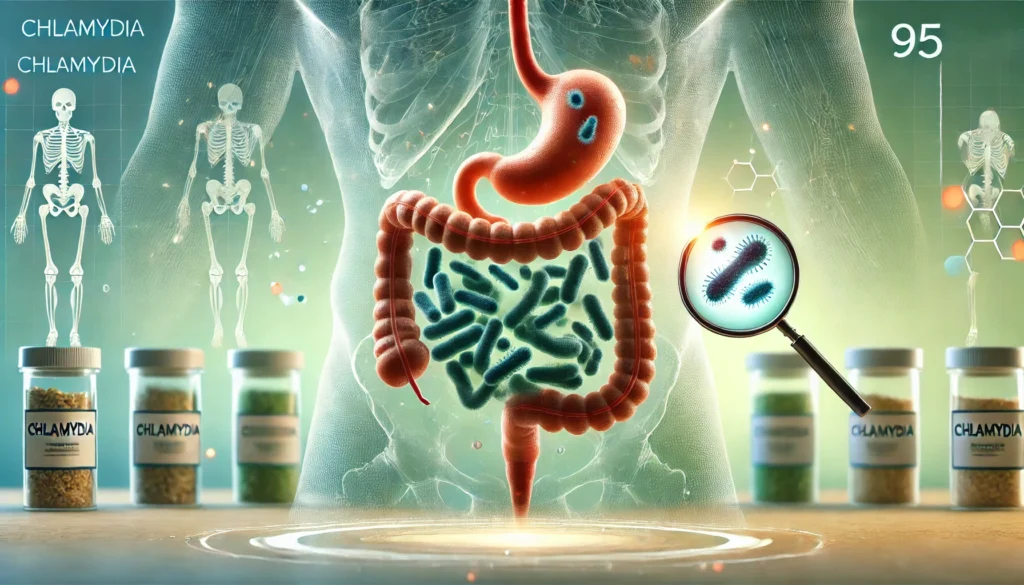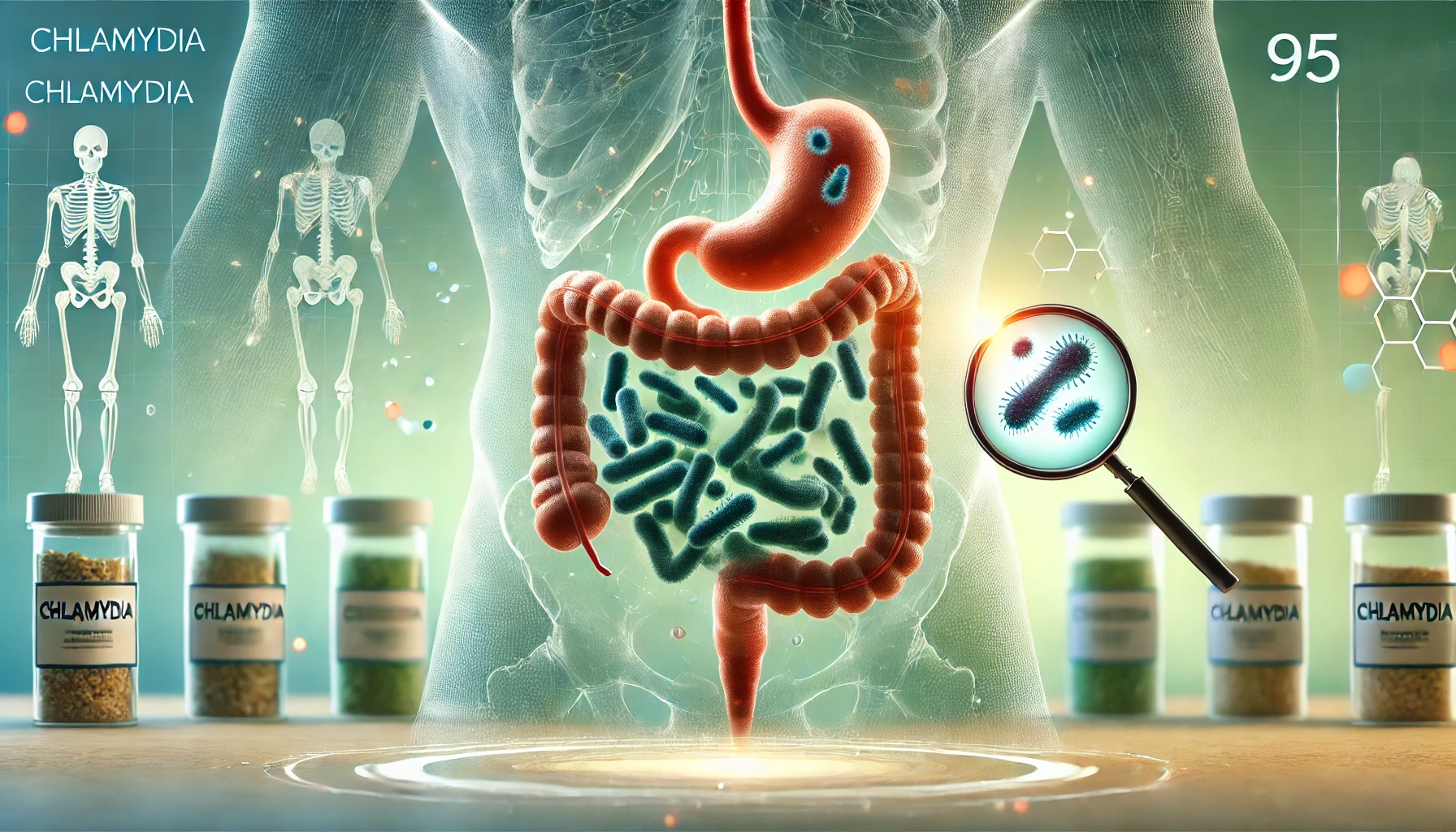Chlamydia: A Hidden Threat in the Gut Leading to Repeated Infections
In the United States today Chlamydia is a prevalent sexually transmitted infection that affects many each year. While it’s often thought of as an infection that only affects the reproductive organs, recent research has revealed a surprising and potentially troubling possibility: Many individuals may carry Chlamydia in their digestive system causing continuous infections after treatment.
Usually a Chlamydia infection is identified through examining the reproductive tract where the bacteria usually live. New findings suggest that Chlamydia is likely to be more difficult to locate than we previously believed. After the initial infection occurs Chlamydia may move and create a hidden storage site in the gut. So even after treatment and a “clear” result from testing in reproductive organs the bacteria might remain hidden in the gut.
This concealed location is a concern as it may trigger a return infection. Once in the gut tract bacteria may shift to reproductive organs again bringing back symptoms. Some people may encounter recurring Chlamydia infections despite taking their doctor’s recommended antibiotic regimen.
Read more: Sharp Rise in Whooping Cough Cases: A Return to Pre-Pandemic Levels in 2024
Impact of Chlamydia Infections
The longevity of Chlamydia in the gut may be tied to its special skill of transitioning into a resting state that resists common antibiotic drugs. Should it arrive in the gut Chlamydia could transition into a metabolically active but nondividing condition. Those features enable it to evade detection by the immune system and disconnect from antibiotics that aim for actively grouping bacteria. The bacteria can hang out in an inactive form for an extensive duration before they become active and spread when the environment is appropriate.
Finding out that Chlamydia resides in the gut has significant effects on treatment and prevention. Present treatment policies primarily emphasize medications aimed at genital tract infections. If the infection resides in the gut along with the reproductive tract infection these treatments may not work well. The finding emphasizes the importance of enhancing Chlamydia treatment with antibiotics that reach both reproductive and intestinal systems.
Read more: Ohio’s Kindergarten COVID-19 Vaccine Rates and Herd Immunity Efforts

Realizing Chlamydia could dwell in the gut may improve practices related to public health and sexual relationships. Continual checking and proper use of condoms play an important role in slowing Chlamydia outbreaks. Recognizing how the gut plays a part in reinfections can promote effective targeted interventions for recurrent infections.
The lack of symptoms in Chlamydia often eludes many infected individuals. Left untreated these infections can create ongoing health issues. Pelvic inflammatory disease (PID), infertility and a greater chance of ectopic pregnancy may be included. Chlamydia’s presence in the gut hides it completely and creates frequent reinfections that raise these risks even more.
Read more: Understanding the Recent Surge in Human Parvovirus B19 Activity in the United States
Key Participants: Business Addresses & Websites
| Participant | Details |
|---|---|
| Live Science | 123 Science Ave, New York, NY Visit Website |
| CDC | 1600 Clifton Rd, Atlanta, GA Visit Website |
| Mayo Clinic | 200 First St SW, Rochester, MN Visit Website |
| NIH | 9000 Rockville Pike, Bethesda, MD Visit Website |
| WHO | Avenue Appia 20, Geneva, Switzerland Visit Website |
The brain is a phenomenal organ that regularly accumulates and interprets enormous volumes of data. Recent research has revealed a fascinating insight: the nervous system preserves no less than three iterations of each memory. We can better interpret the formation and storage of memories thanks to this breakthrough.
In the past scientists thought that memories existed in a solitary place in the brain. New findings propose an alternative view. Each memory has different versions stored in different parts of the brain. This multi-replication system guarantees that memories retain their durability and can be recovered when a section of the brain is affected.
Read more: Understanding MIS-C: A Rare but Serious Post-COVID Syndrome in Children
Chlamydia: Test Your Knowledge
1. Can Chlamydia hide in the gut and cause repeated infections? (Yes/No)
2. Which of the following can happen if Chlamydia remains untreated? (Toggle Select)
3. Select all correct implications of Chlamydia hiding in the gut. (Multiple Select)
4. How should individuals prevent Chlamydia infections? (Drop Down Select)





This article sheds light on the often-overlooked fact that chlamydia can hide in the gut, potentially leading to repeated infections even after treatment. Recognizing this hidden reservoir emphasizes the need for more thorough diagnostic practices and innovative treatment approaches. It highlights the importance of addressing chlamydia comprehensively, not just focusing on the genital infection, to prevent recurring health issues and ensure effective management of the infection. Understanding these dynamics can significantly enhance both prevention strategies and patient outcomes.
This article highlights a crucial aspect of chlamydia that often goes unnoticed: its ability to reside in the gut and lead to repeated infections. Understanding this hidden threat is vital, as it underscores the importance of comprehensive testing and treatment approaches that target not only the genital tract but also potential gut reservoirs. Addressing these reservoirs can help prevent chronic infections and reduce the risk of antibiotic resistance, emphasizing the need for ongoing research and awareness about the broader impacts of chlamydia on overall health.
This article provides valuable insights into the lesser-known impacts of chlamydia on gut health. It’s eye-opening to learn how this hidden threat can lead to repeated infections. Thanks for highlighting the importance of understanding chlamydia beyond its common symptoms. Awareness like this can truly help in better prevention and treatment strategies!